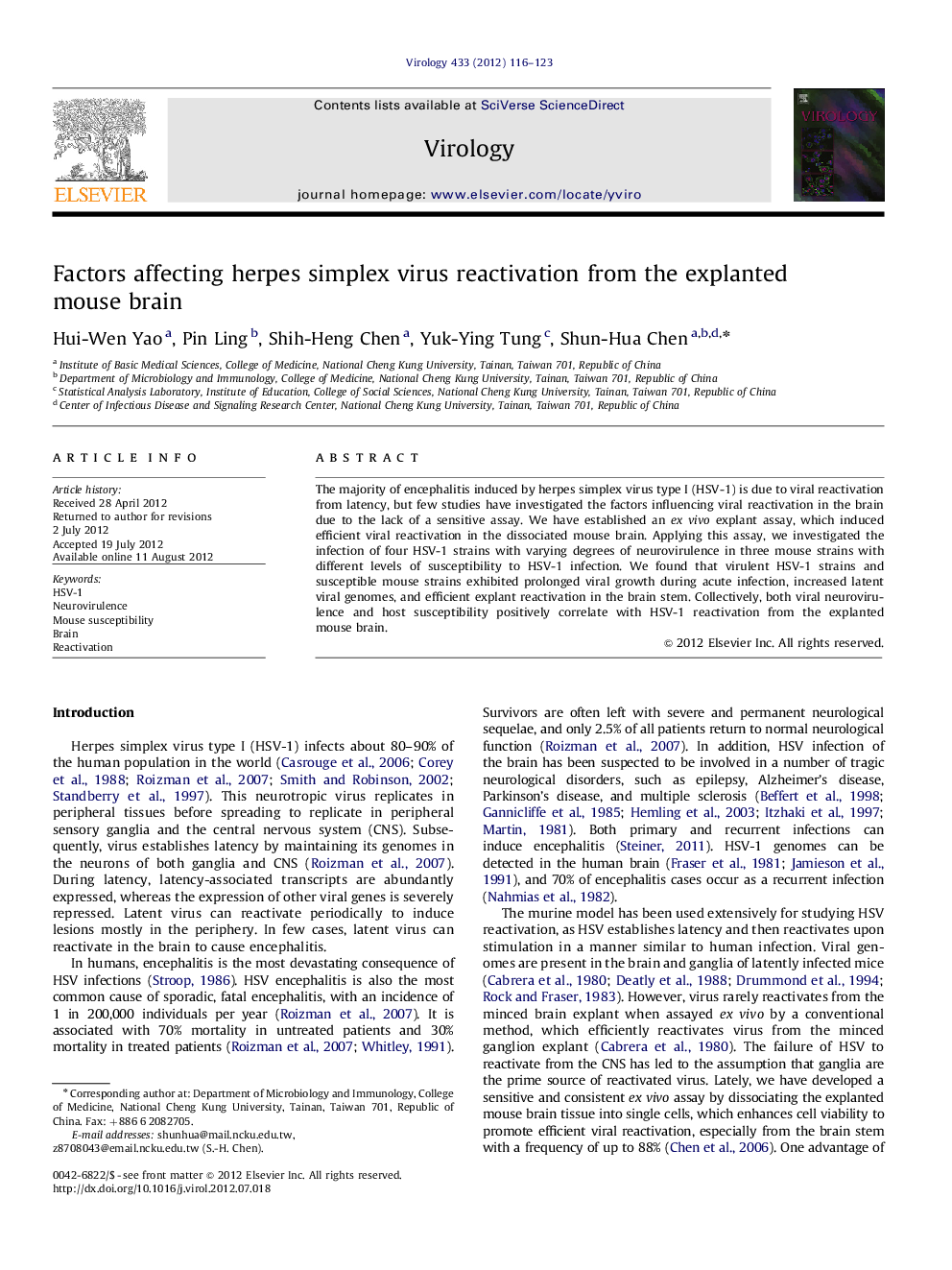| Article ID | Journal | Published Year | Pages | File Type |
|---|---|---|---|---|
| 6141085 | Virology | 2012 | 8 Pages |
Abstract
The majority of encephalitis induced by herpes simplex virus type I (HSV-1) is due to viral reactivation from latency, but few studies have investigated the factors influencing viral reactivation in the brain due to the lack of a sensitive assay. We have established an ex vivo explant assay, which induced efficient viral reactivation in the dissociated mouse brain. Applying this assay, we investigated the infection of four HSV-1 strains with varying degrees of neurovirulence in three mouse strains with different levels of susceptibility to HSV-1 infection. We found that virulent HSV-1 strains and susceptible mouse strains exhibited prolonged viral growth during acute infection, increased latent viral genomes, and efficient explant reactivation in the brain stem. Collectively, both viral neurovirulence and host susceptibility positively correlate with HSV-1 reactivation from the explanted mouse brain.
Keywords
Related Topics
Life Sciences
Immunology and Microbiology
Virology
Authors
Hui-Wen Yao, Pin Ling, Shih-Heng Chen, Yuk-Ying Tung, Shun-Hua Chen,
